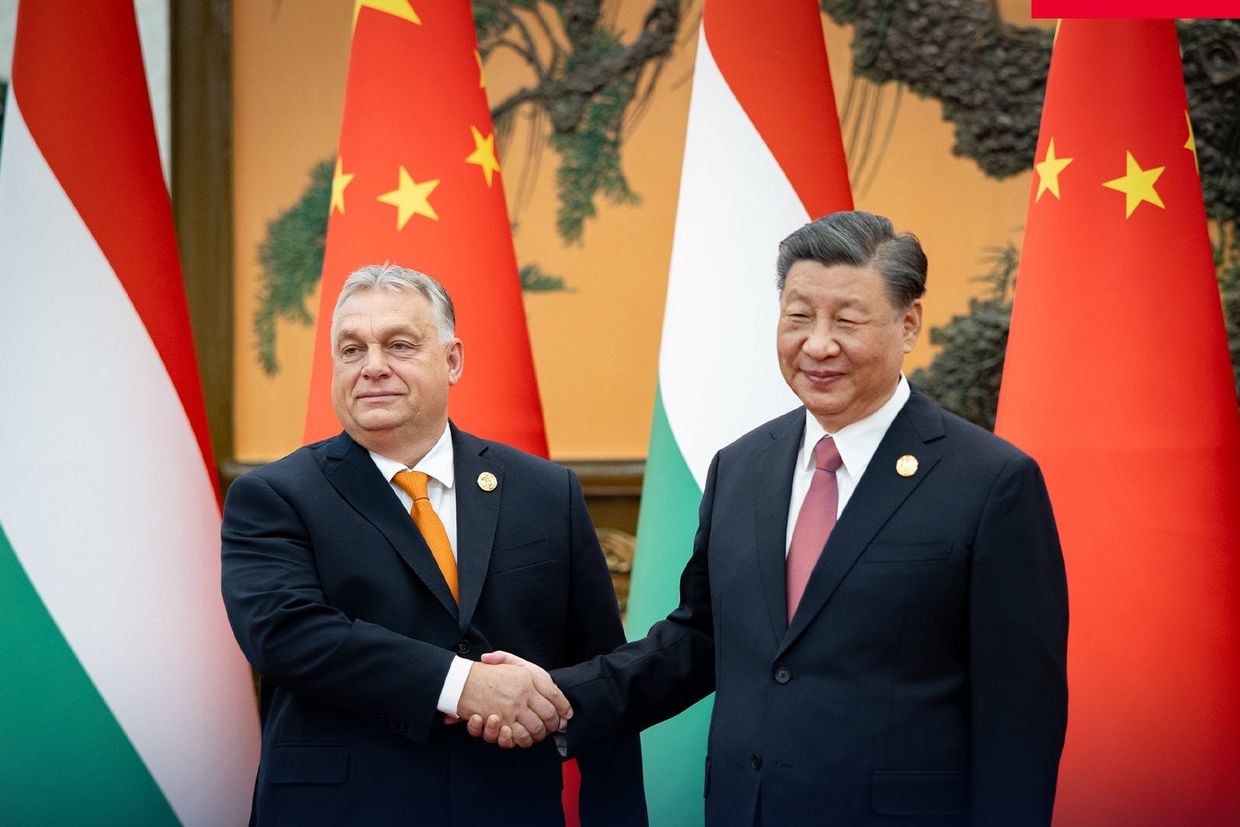Hungarian FM visits Iran, signs trade agreement

Hungarian Foreign Minister Peter Szijjarto visited Tehran on Feb. 22, meeting his Iranian counterpart, Hossein Amir-Abdollahian, and signing a trade deal in the agriculture and food industries.
Officials of NATO and EU countries rarely visit Iran as it remains one of the most sanctioned countries in the world due to its human rights record, nuclear program, and support for terrorist and militant groups abroad.
Tehran has provided extensive support to Moscow's war against Ukraine, including Shahed kamikaze drones and reportedly even missiles. In turn, Budapest also maintains friendly relations with Russia and often bucks the united Western front on foreign policy issues.
"The cooperation agreement between Iran and Hungary, signed today and entering into force, provides additional trade opportunities in the fields of agriculture and the food industry," Szijjarto said on Facebook.
"The agreement opens the possibility of even more active entry into the Iranian market for high-quality Hungarian agricultural technologies and food industry products."
Szijjarto attended a Hungarian-Iranian business forum in Tehran to discuss sectors not affected by sanctions, including pharmaceutical, food, healthcare, and water management industries, the Hungarian news portal Index reported. Representatives of Hungarian businesses were also present.
"It doesn't matter what we think about sanctions in general," Szijjarto said in Tehran, adding that building cooperation under sanctions is "not easy" but also "not impossible."
Speaking at the press conference with Amir-Abdollahian, the Hungarian foreign minister said that Hungary wants to prevent an escalation of conflicts in the Middle East, adding that he expects Tehran to "behave responsibly."
Iran provides support to militant groups in Yemen, Syria, Iraq, and Lebanon, which have recently clashed with Western powers. Tehran also backs the Palestinian militant group Hamas, currently embroiled in a war with Israel.
Szijjarto further said that the world is heading toward the formation of two blocs yet again, stressing that Hungary does not want to get caught in between as it once did.
"Hungary does not see East-West cooperation as a danger or risk but as a huge opportunity," he said.













